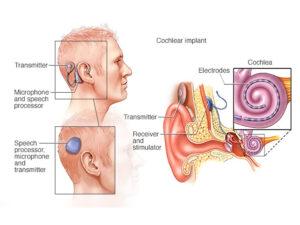
Otolaryngology
Otolaryngology, commonly referred to as ENT (ear, nose, and throat) medicine, is a specialized medical field that focuses on the diagnosis and treatment of disorders and conditions affecting the head and neck region. Otolaryngologists, or ENT specialists, are physicians trained to address a diverse range of medical issues, from common ear infections to complex head and neck cancers.
One of the primary areas of expertise within otolaryngology is the management of ear-related conditions. Otolaryngologists diagnose and treat disorders such as hearing loss, ear infections, tinnitus, and balance disorders. They are also skilled in performing surgical procedures to address issues like chronic ear infections, ear drum perforations, and hearing restoration through procedures like cochlear implants.
Nasal and sinus disorders fall within the scope of otolaryngology as well. Otolaryngologists are equipped to diagnose and treat conditions such as sinusitis, nasal polyps, and nasal obstructions. They may employ both medical and surgical interventions to alleviate symptoms and improve nasal function.
The throat is another crucial area of focus for otolaryngologists. They manage conditions affecting the voice, swallowing, and overall throat health. This includes treating voice disorders, throat infections, and diseases of the larynx. Otolaryngologists may also play a key role in the diagnosis and treatment of sleep-disordered breathing, including sleep apnea.
Additionally, otolaryngologists are involved in the diagnosis and treatment of head and neck conditions, ranging from benign tumors to malignant cancers. They collaborate with other specialists, such as oncologists and radiologists, to provide comprehensive care for patients with tumors or abnormalities in the head and neck region.
Otolaryngology encompasses both medical and surgical approaches to treatment. Medical interventions often involve medications, lifestyle modifications, and therapies, while surgical procedures may include complex reconstructive surgery, removal of tumors, or procedures to improve functional aspects of the ears, nose, and throat.
The field of otolaryngology continually evolves with advancements in medical technology and research. Otolaryngologists stay current with the latest developments to offer patients state-of-the-art diagnostic and treatment options. Whether managing common conditions or addressing complex medical issues, otolaryngologists play a vital role in enhancing the overall health and well-being of individuals experiencing disorders in the head and neck region.

